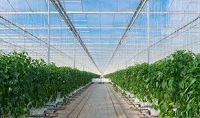Agriculture is crucial for feeding a growing population while preserving the environment and ensuring food security. Key actions are needed for more sustainable agriculture, with technological innovation playing a crucial role in addressing future challenges. This article explores these aspects and examines the key determinants of food security.
Key Actions for More Sustainable Agriculture:
1. Promotion of Environmentally Friendly Farming Practices:
Encouraging practices like agroecology and permaculture promotes soil health, reduces chemical use, and preserves biodiversity.
2. Smart Management of Natural Resources:
Efficient water use through modern irrigation techniques and soil conservation to prevent erosion and maintain soil fertility.
3. Crop Diversification:
Promoting a variety of crops strengthens agricultural systems’ resilience to climate change and crop diseases.
4. Investment in Education and Training:
Raising awareness among farmers about sustainable practices and providing them with the knowledge and skills to implement them successfully.
Ways to Ensure Food Security for Sustainable Agriculture:
1. Promotion of Local Agriculture:
Supporting small-scale farmers and local markets ensures constant access to fresh and nutritious food.
2. Food Distribution Programs:
Implementing food distribution and aid initiatives for vulnerable populations, especially in regions affected by humanitarian crises.
3. Improvement of Agricultural Infrastructure:
Enhancing agricultural infrastructure involves developing infrastructure such as irrigation systems, rural roads, and storage warehouses to facilitate food production and distribution.
4. Nutritional Education:
Educating communities about the importance of balanced and nutritious diets, as well as good dietary practices, promotes health and well-being.
Technological Innovations in Agriculture:
1. Agricultural Drones:
Using drones to monitor crops, map land, and detect plant health issues quickly and accurately.
2. Precision Agriculture:
Utilizing sensors and GPS technologies to optimize the use of agricultural inputs such as water, fertilizers, and pesticides, thereby reducing costs and environmental impacts.
3. Biotechnology:
Developing genetically modified crops resistant to diseases, pests, and harsh environmental conditions improves crop yield and sustainability.
4. Internet of Things (IoT):
Integrating sensors and connected devices to monitor and control agricultural conditions such as soil moisture, air quality, and crop health in real time.
Key Determinants of Food Security:
1. Food Availability:
Food availability represents the quantity of food produced and available for consumption, influenced by agricultural production and food stocks.
2. Food Access:
Individuals’ ability to obtain and purchase nutritious food, determined by factors such as income, market availability, and geographical accessibility.
3. Food Utilization:
The use of food to meet nutritional needs is influenced by socio-cultural and economic factors such as dietary habits and culinary traditions.
4. Food Stability:
Maintaining regular access to adequate and nutritious food, without major disruptions such as natural disasters or conflicts, is essential.
In summary, sustainable, innovative, and secure agriculture is crucial for addressing global challenges of food security and environmental sustainability. By adopting environmentally friendly farming practices and investing in innovative technologies, we can create a future where everyone has equitable and sustainable access to nutritious food.
